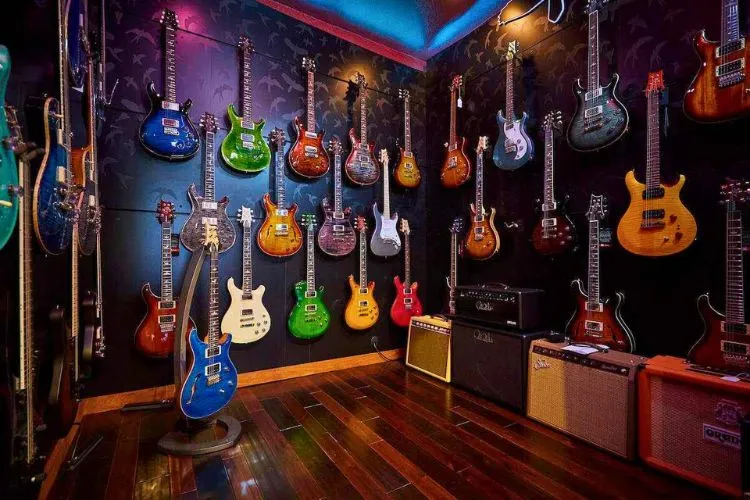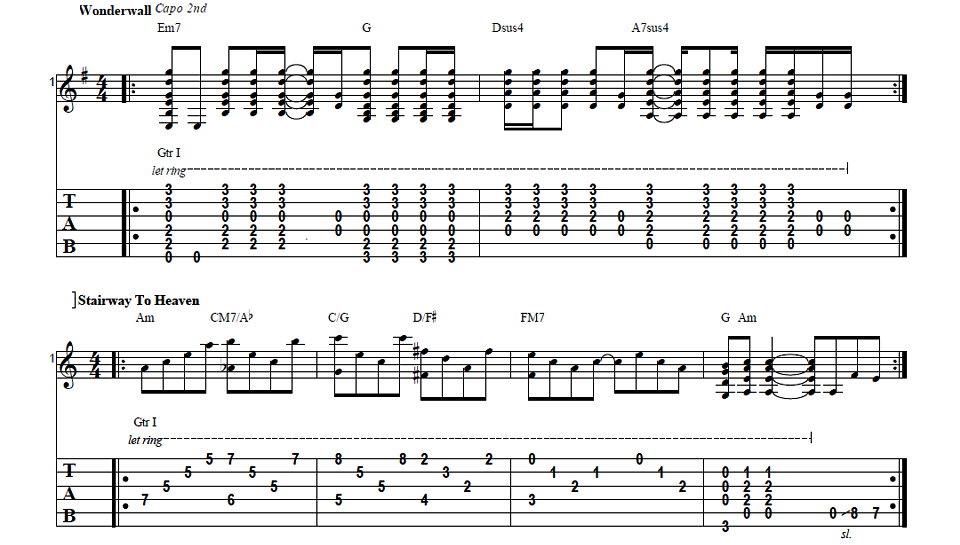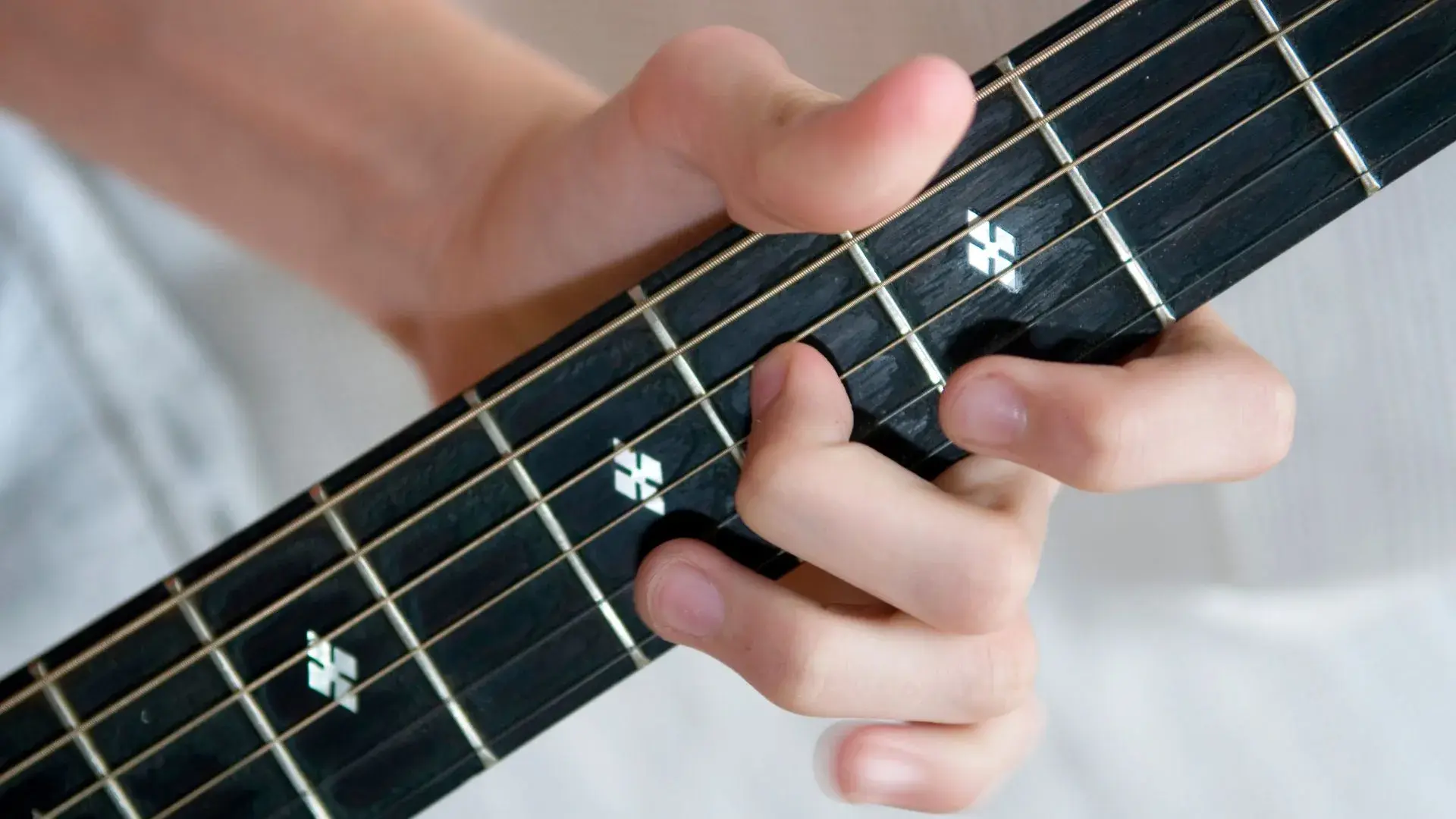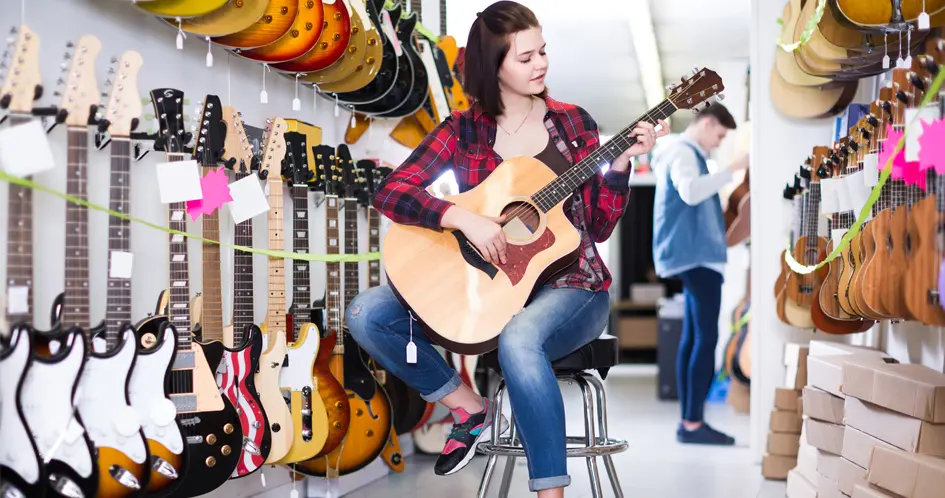Few can resist the allure of a beautifully crafted guitar when they first step inside a music store. The desire to pick it up, create notes, form chords, and strum a familiar tune is quite irresistible.
However, you may have heard a peculiar rumor – there are certain riffs forbidden to be played in guitar stores.
Is that true? And if so, why do guitar stores have forbidden riffs? In fact, why would any music store restrict customers from playing a specific melody or sequence of notes?

This phenomenon, often, raises eyebrows, especially among budding guitarists because, believe it or not, this rumor is true to an extent. So, let’s dive deep into this intriguing aspect of music culture.
Contents
- 1 🎶Why Do Guitar Stores Have Forbidden Riffs?
- 2 🎶Understanding the Concept of Forbidden Riffs
- 3 🎶Famous Forbidden Riffs: A List
- 4 🎶Unraveling the Reasons behind Banning Certain Riffs in Guitar Stores
- 5 🎶Impact and Influence of ‘Forbidden Riffs’
- 6 🎶Enforcing the Rule: How Guitar Stores Manage ‘Forbidden Riffs’
- 7 🎶Debunking the Myth: Are all Guitar Stores Anti-Riff?
🎶Why Do Guitar Stores Have Forbidden Riffs?
Guitar stores have “forbidden riffs” primarily due to their overuse. Riffs like Led Zeppelin’s “Stairway to Heaven” have been played so frequently by visitors testing guitars, they’ve become a nuisance to staff and other customers.
This phenomenon led to an informal ban as a measure to maintain a pleasant shopping environment and encourage musicians to explore a wider range of music instead of defaulting to these overplayed melodies.
Additionally, the concept of music store etiquette plays a role, where the community encourages respect for the shared space and the diversity of music.
While not an official policy, the discouragement of certain riffs has become a quirky aspect of guitar store culture, aimed at improving the experience for everyone involved.
🎶Understanding the Concept of Forbidden Riffs
Forbidden riffs refer to particular musical sequences that are unofficially banned or discouraged from being played in guitar stores.
The concept originated from the notion that some riffs, often iconic and relatively straightforward to play, became excessively popular among store visitors to the point of becoming a nuisance, hence the informal prohibition.

The origins of this concept are shrouded in a mix of music store folklore and anecdotal evidence, but it’s generally concluded that as certain songs gained popularity, their riffs were often overplayed in stores, earning them a spot on the forbidden list.
🎶Famous Forbidden Riffs: A List
The list of these frowned-upon riffs includes several rock classics like Led Zeppelin’s ‘Stairway to Heaven,’ Deep Purple’s ‘Smoke on the Water,’ Guns N’ Roses ‘Sweet Child O’ Mine,’ and Oasis’ ‘Wonderwall.’
These tunes, undoubtedly, earned their fame for being the remarkable compositions that they are. Yet it’s this fame, combined with their relative simplicity, that has led to their reputation as being overplayed in guitar shops.
🎶Unraveling the Reasons behind Banning Certain Riffs in Guitar Stores
Let’s now delve into the specific reasons for the forbidden status of these riffs. One of the primary reasons lies in the overuse and misuse of certain riffs by customers.
Playing the same riffs repeatedly, albeit unintentionally, can create an echo chamber, resulting in a dissonant and unpleasant environment for other shoppers and the store staff. Therefore, store owners unofficially forbid these riffs to maintain a pleasant shopping atmosphere.

Moreover, an underappreciated aspect of this discussion revolves around the concept of ‘Music Store Etiquette.’
Just as there are proper manners and etiquettes in libraries and restaurants, music stores are no different. These unwritten rules discourage the incessant playing of the same set of riffs, endorsing diverse exploration of the instrument instead.
Lastly, there may be minor copyright issues at play. While this is less common, some stores might discourage the performance of certain riffs to keep clear of any potential copyright infringement lawsuit, albeit a distant possibility.
🎶Impact and Influence of ‘Forbidden Riffs’
The prevalence of these unwritten rules has interestingly influenced music culture and guitar-based learning.
Novice guitarists, initially intrigued by the forbidden nature of these riffs, often tend to explore other less-known pieces, resulting in a broader learning experience.
Simultaneously, the whole narrative around ‘forbidden riffs’ has intriguingly shaped the guitar store culture, adding a unique characteristic that sets music stores apart from other retail places.
🎶Enforcing the Rule: How Guitar Stores Manage ‘Forbidden Riffs’
The enforcement of forbidden riff rules varies significantly from store to store and often hinges on the storeowner or staff’s discretion.

Some staff members may casually remind the customers of the rule when they launch into an overly familiar riff, while others take a more laid-back approach, tolerating the situation unless it becomes excessively disruptive.
🎶Debunking the Myth: Are all Guitar Stores Anti-Riff?
While the existence of ‘forbidden riffs’ stands valid to an extent, it’s important to know that not all guitar stores enforce this. Some store owners welcome shoppers playing any riff, viewing it as an essential part of the buyer’s experience.
In these stores, customers’ freedom to play their chosen riffs, be it ‘Stairway to Heaven’ or another number, is considered an integral component of their joy of discovery and musical learning.
Conclusion
In conclusion, the notion of ‘forbidden riffs’ in guitar stores is a fascinating aspect of music retail culture. Born out of a mix of practicality, etiquette, and slightly overblown folklore, these forbidden riffs continue to enthrall and simultaneously mystify guitar novices and experts alike.
So the next time you pick up a guitar in a store, remember: there might be more to those strings and frets than just the music. It’s a culture in itself, with its unique narratives and shared experiences, one of which is the intriguing tale of the ‘forbidden riffs.’
